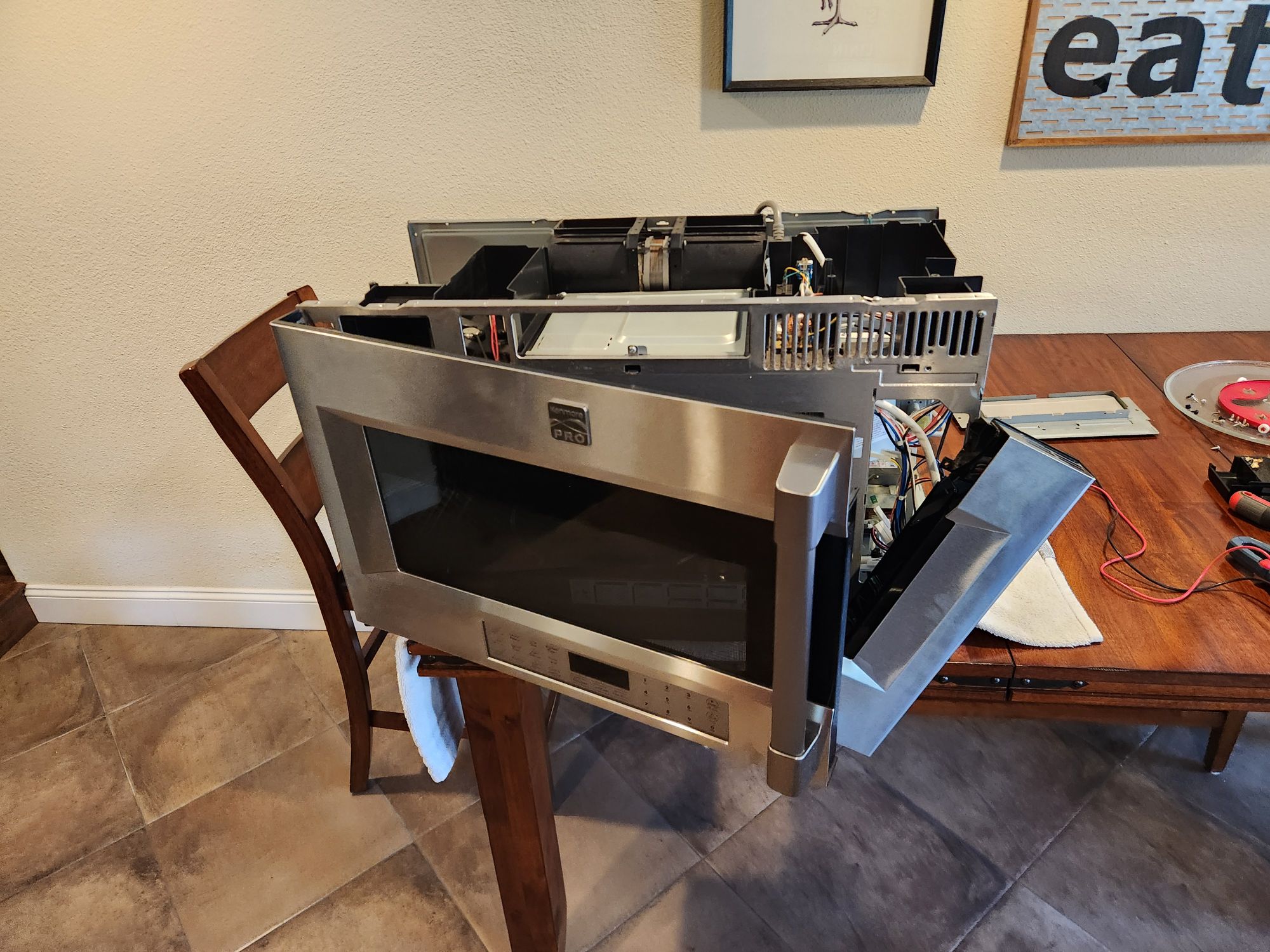A microwave that turns on but doesn’t heat your food is more than an inconvenience—it’s a sign that something critical inside the appliance has gone wrong. If your microwave runs but leaves your leftovers cold, the most likely culprits are a defective magnetron or a faulty high-voltage capacitor. Understanding the function of these components and recognizing the symptoms of failure can help you identify the problem early and avoid costlier repairs or replacements.
The Role of the Magnetron in Microwave Heating
At the heart of every microwave oven is a component known as the magnetron. This device converts electrical energy into high-frequency microwaves that penetrate food and cause water molecules to vibrate, generating the heat that cooks or warms your meals.
When the magnetron fails, the microwave can still appear to work normally—lights turn on, the turntable spins, the timer counts down—but the food remains cold. A defective magnetron is often the result of:
- Aging or wear: Over time, regular use causes the magnetron to degrade.
- Electrical surges: Power spikes can damage the magnetron’s internal circuits.
- Prolonged use while empty: Running the microwave with nothing inside can cause energy to reflect back into the magnetron, leading to overheating and damage.
If the magnetron has failed, it will need to be replaced. This isn’t a DIY-friendly repair—magnetrons handle high-voltage electricity and require professional attention due to safety risks.
Understanding the High-Voltage Capacitor
The high-voltage capacitor in a microwave works in tandem with the magnetron. It stores and releases electricity needed to drive the magnetron and generate microwaves. If the capacitor is defective, the magnetron may not receive enough power to function, or it may not operate at all.
Signs of a faulty capacitor include:
- Microwave running without heating food
- Buzzing or humming noises
- A burnt smell or signs of overheating
- Microwave shutting down after a few seconds
Testing or replacing a capacitor is dangerous due to the high voltage it can retain even after the microwave is unplugged. It can deliver a serious electric shock unless properly discharged, which is why only trained technicians should handle this component.
Additional Symptoms and Misconceptions
Before assuming your microwave has a magnetron or capacitor problem, check for some common misunderstandings and other symptoms:
- Incorrect power settings: Make sure your microwave isn’t set to a low power level by accident.
- Faulty door switch: If the door switch doesn’t engage properly, it may prevent the microwave from heating while still appearing operational.
- Control board issues: Sometimes, the control panel can send faulty signals, disrupting normal operation.
However, if none of these simple issues seem to be the cause and your microwave still doesn’t heat, it’s likely the problem lies deeper—within the high-voltage system.
Why You Shouldn’t Attempt the Repair Yourself
Microwaves are one of the few household appliances where attempting DIY repairs is genuinely dangerous. Components like the capacitor can store lethal amounts of electricity, and improper handling could lead to serious injury. Even diagnosing the problem requires specialized tools and training.
Professionals have the knowledge, tools, and safety equipment to:
- Safely discharge the capacitor
- Test voltage output accurately
- Replace the magnetron or capacitor with manufacturer-approved parts
- Ensure the microwave operates safely after repair
Repair or Replace?
When dealing with a defective magnetron or capacitor, the cost of replacement parts and labor can sometimes rival the cost of a new microwave—especially for lower-end models. However, for high-end or built-in units, repair is often the more economical and environmentally responsible choice.
A certified technician can assess the condition of your microwave and help you decide whether repair is worthwhile. In many cases, a magnetron or capacitor replacement can restore the appliance to full functionality for years to come.
Get Help from Trusted Experts
If your microwave isn’t heating and you suspect a deeper electrical fault, it’s time to bring in the professionals. At Home Appliance Service Center, our skilled technicians are equipped to handle all makes and models of microwaves, and we specialize in safely diagnosing and repairing magnetron and capacitor issues.
Don’t risk your safety or waste time trying to guess the issue—let us restore your microwave to working condition quickly and affordably.
Contact Home Appliance Service Center today for reliable microwave repair service. We’ll have your meals hot and ready again in no time.
Contact us
 619-928-5000
619-928-5000  Request Service
Request Service 
